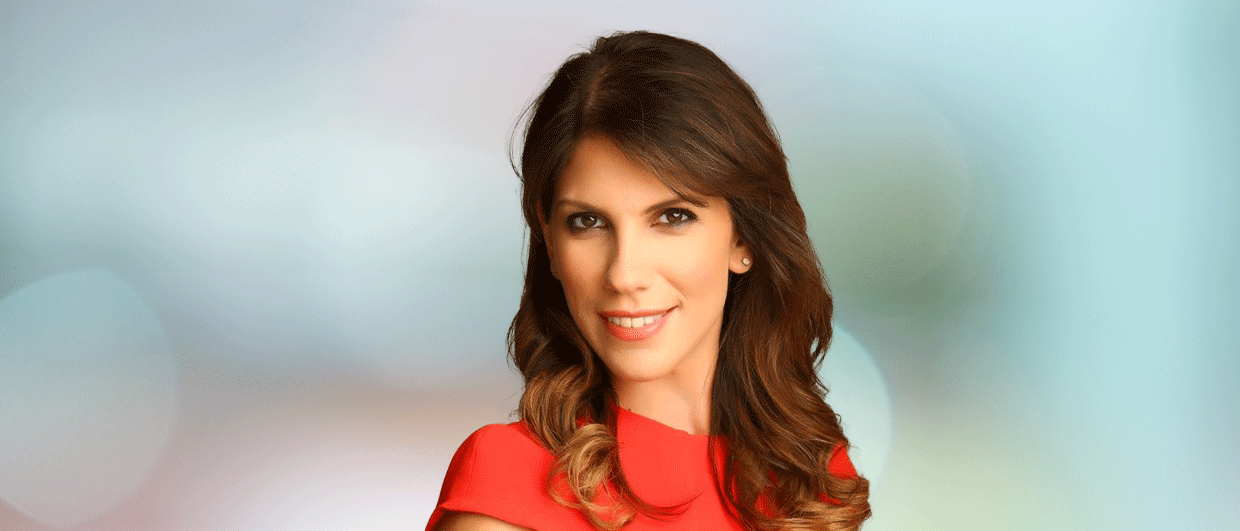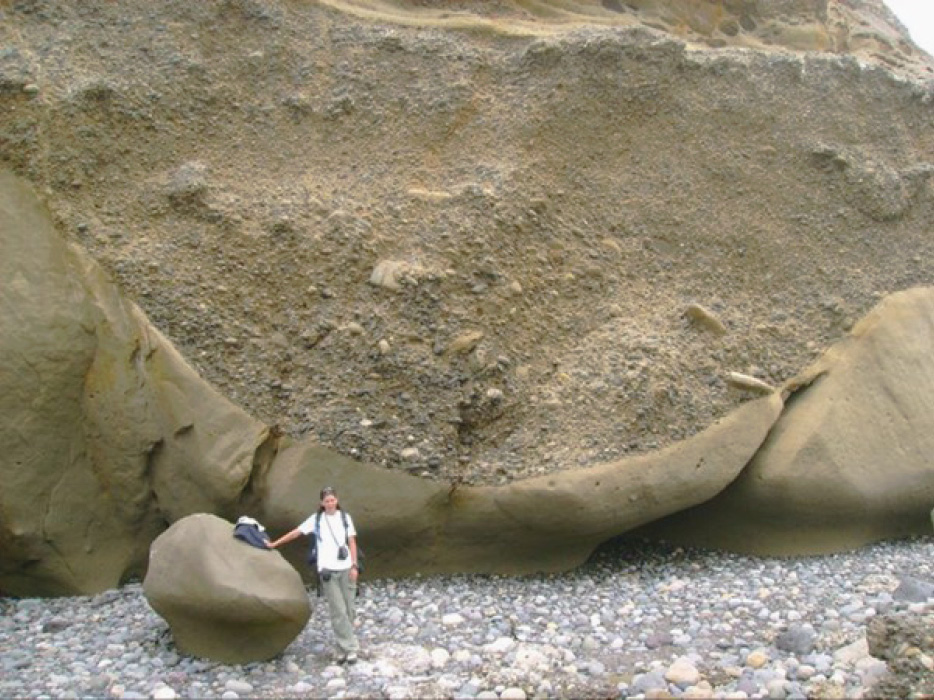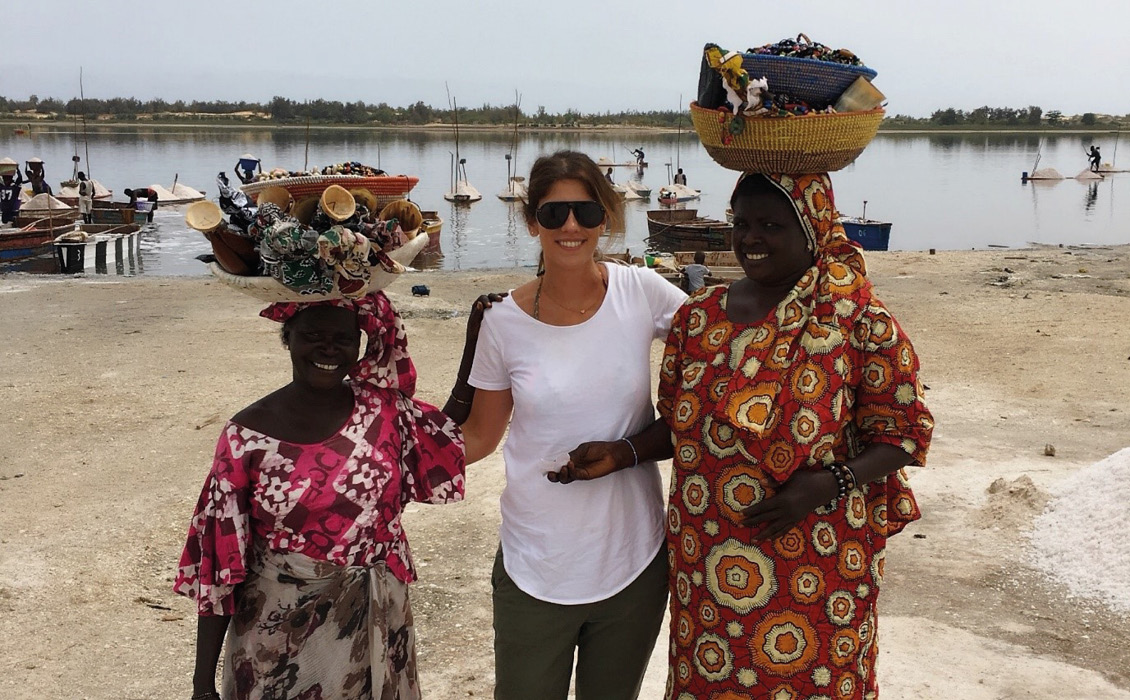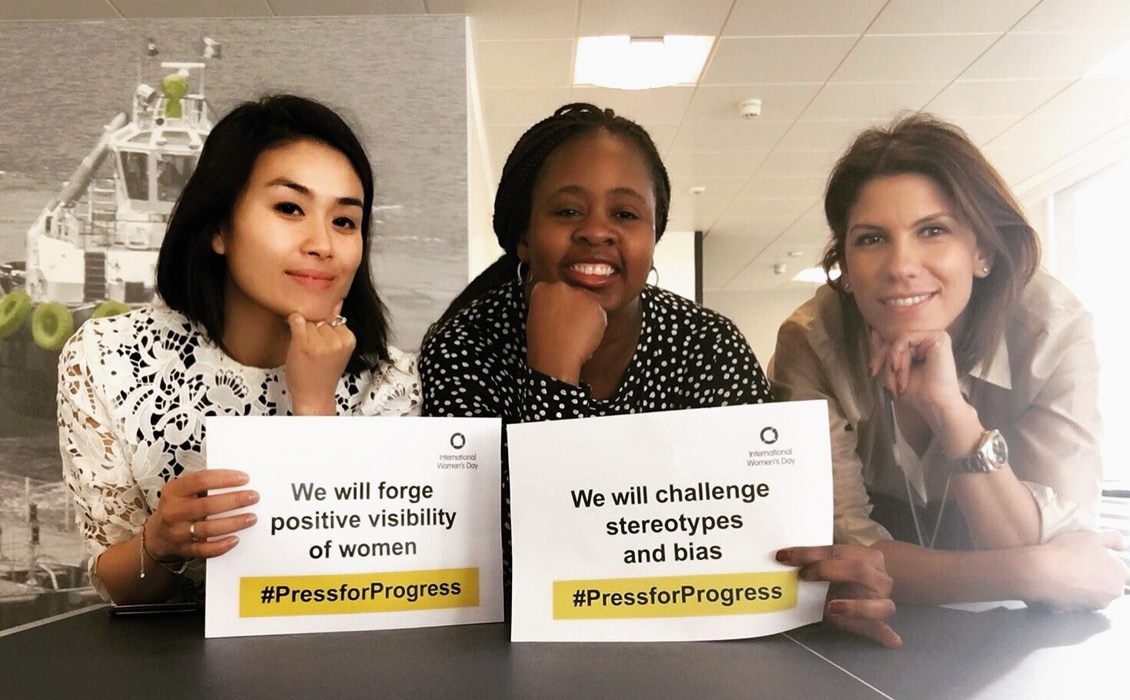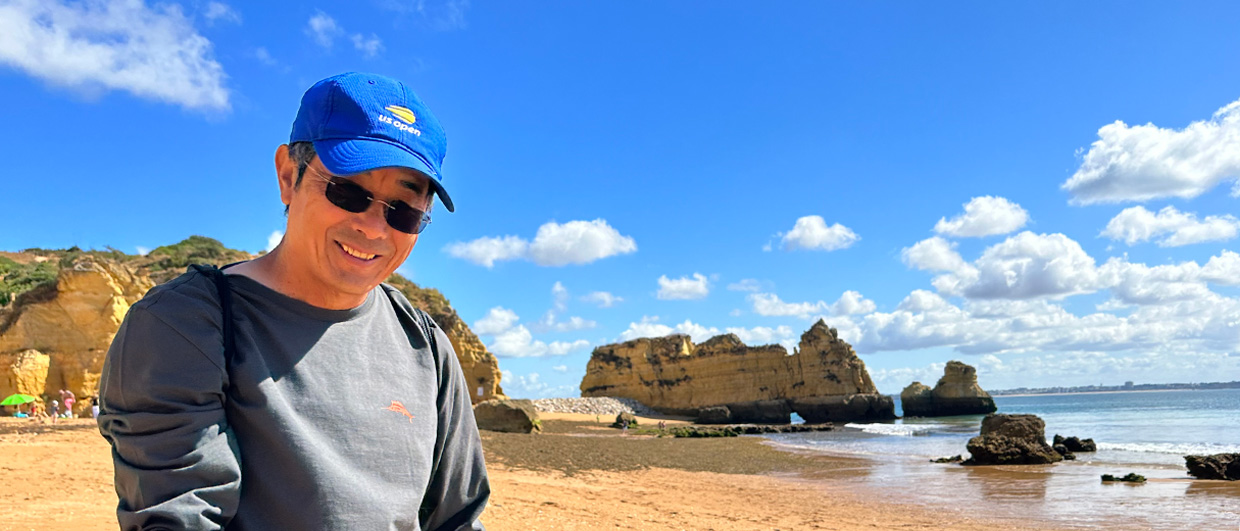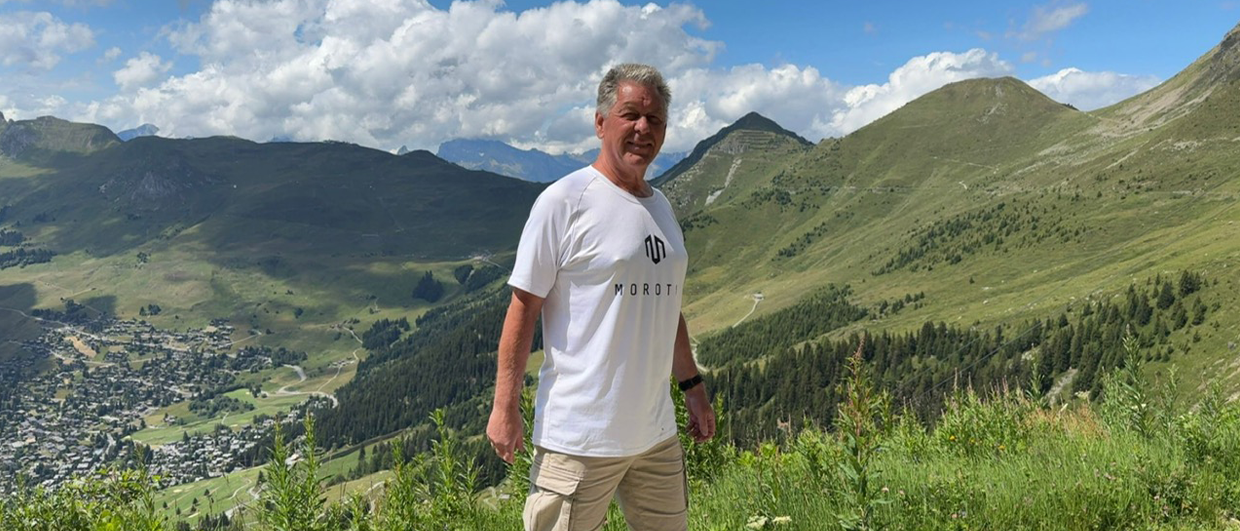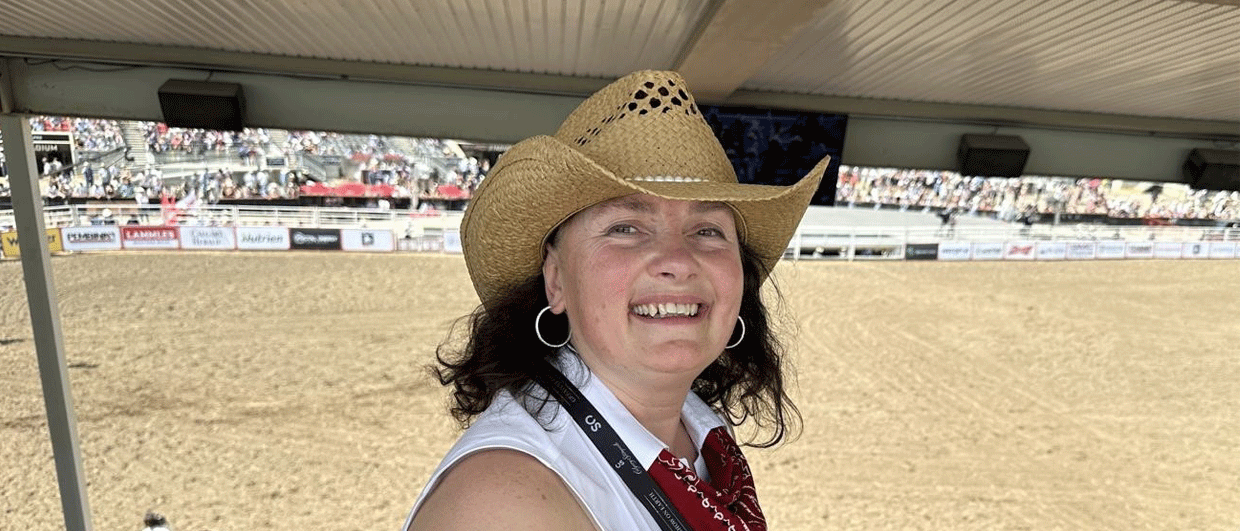A Young Entrepreneur
“My father was the first to introduce computers to Greece back in the 1970s, and as a kid, I remember growing up in a house full of creativity, risk and love of maths! I believe this shaped my ‘entrepreneurial’ side.”
Katerina clearly had a head for business at a very young age and started her ‘first job’ at the age of five. “I was spending all my summers at my father’s company and while waiting for them to finish work, I started making coffees for the employees while charging them for my services! I continued a few years later by publishing the only school newspaper as a student of my primary school. What I learnt from my family is to work and learn with every opportunity I get in life and if there isn’t one, to create it.”
A Dramatic Introduction to Geology
On September 7 in 1999, a 16-year-old Katerina was having lunch with her family in Athens, Greece. A student who excelled in maths and physics, she was still having trouble choosing what to do with her life. It was just after 2pm on the same day that a magnitude 6 earthquake hit Athens near Mount Parnitha with a maximum Mercalli intensity of IX (Violent). “It was the very first big magnitude earthquake that I had ever experienced,” she said. “It was not the fact that the entire apartment of a seven-floor building was moving right and left, but the deep sound that came with it that captivated me!” It was her first introduction to plate tectonics, and she was utterly impressed by Mother Nature.
This event contributed to her decision to study geology at the Greek University of Patras. With a brother already living abroad in London, Katerina was determined to continue her studies in the UK. Immediately after her Bachelors, she started her PhD in Geoscience at the University of Aberdeen in Scotland. “Working as part of a Consortium, the PhD gave me early experience of working with major oil companies. I travelled the world for months while I was doing my fieldwork, and I was privileged to study areas that no one had even been to before.”
Katerina soon realised that she didn’t want to be an academic. She was getting impatient and working with the major oil companies was extremely appealing at a time when the oil price was averaging over $70/barrel. At this point she switched from being a full-time to a part-time student, although she didn’t know at that time how hard it would be to keep on top of a challenging career and a PhD at the same time.
Variety and Diversity
“The word that can characterise best my work experience is ’diversity‘ and people will either love or hate the variety of roles I have had so far. I have worked for a service company, for a privately owned oil and gas company, for a major state oil and gas company and now a start-up. I have had roles from deep technical, to setting up a new business in West Africa, to strategy and portfolio, managing small and large teams, contract negotiating, and building partnerships. Most importantly, what has shaped my career is my thirst for learning new things and making decisions. What gives me immense satisfaction is inspiring the people around me. What has changed since the earlier years is that now, more than ever, I need to feel that I contribute actively to society and work for something bigger; for an idea that inspires me to do something good for the world. I will always be a geoscientist at heart, and I think it is one of the most beautiful sciences that one can do.”
hardcore geophysics, interpreting seismic data in ways that suited my mathematical brain. As the only geologist in the group, I had the freedom and luxury to develop my own depositional models. However, my frustration at not seeing the outcome of ’my’ prospects led to my decision to leave and join an operator.”
Greek Heritage and the NOC Ladder
As a proud Greek, Katerina decided to move back to her home country and join Energean, which at that time was a privately owned small oil and gas company and is now one of the most successful mid-cap companies. “What I learnt through my years with Energean is ‘all for one and one for all’. In a small company with aggressive ambition to grow, you simply have to do a bit of everything: exploration, production, new ventures, admin, technical support etc.”
More than three years later, her desire to see more wells drilled and be exposed to broader operations, led to the decision to join Nexen, a Canadian oil company which, a few weeks after she joined, was acquired by CNOOC. “We then became CNOOC International, and I spent eight years changing roles on average every 18 months,” she explains. “Within CNOOC, I made my first career transition from technical to non-technical roles when I moved from Senior Geoscientist for West Africa Captured Basins to be the New Country Entry Manager for Senegal.”
Management Role
This was one of the most unforgettable parts of my career. I left technical work to coordinate a team of over 50 nontechnical individuals. Trying to navigate the corporate ladder while the oil price was falling, in a state-owned company, with a different culture from Europe and within a very male-dominated industry, came with its challenges”.
“Being addicted to personal development and keen to show my company that I was serious about moving to more commercial roles, I decided to go back to studying and do an executive MBA at the London Business School. I thought that would be the same as when I did my part-time PhD, but it was not, for two simple reasons: I had moved further in my career, and the responsibilities were much greater, plus I was ten years older. When I started my MBA, I was absolutely optimistic that I would go back to the corporate ladder and advance a few steps by the end of it. I didn’t anticipate that the academic environment and the exposure to so many exciting people would lead me to a significant change of mindset.”
Green Shoots
By the end of this course, Katerina realised that what she wanted to do was make a difference and have a job with more meaning and to take more risks. “The opportunity to join my current company, Clean Planet Energy (CPE), a UK based company which converts non-recyclable plastics into ultra-clean fuel, came at the best time possible. I always follow the advice that I was once given: ‘don’t run away from your current job, but run to your dream job’. CPE had offered me a role where I knew I could make a difference to the world, exploiting my creativity while allowing me to grow more by taking considerably more responsibility. This is why I decided to make the transition from Upstream to the Circular Economy and Greentech.”
“I’m really proud of my years in the oil and gas Upstream industry because it allowed me to develop the critical skills I now need in this new phase of my career.” Katerina is currently the Commercial and Business Development Director for CPE. Her job is to secure long-term partnerships for both feedstock and offtake, while promoting CPE and determining short- and long-term commercial strategies. “My role is diverse, as expected with any start-up. Sometimes I may miss the structure that is usual in larger organisations, but at the same time, this allows me to make a difference and set my own standards to many different aspects of the business. I am initiating exciting new partnerships, dealing with multiple contracts and agreements, communications, PR and strategy while I’m actively doing something to help the environment!”
“Reflecting on my career so far and the different positions I’ve held, I believe that a fresh start is not a new place, but it’s a new mindset and it’s within everyone’s ability to make a new start every day if they wish to. I am excited about the energy sector’s future, and I believe everything can be achieved with hope and confidence,” Katerina concludes.

